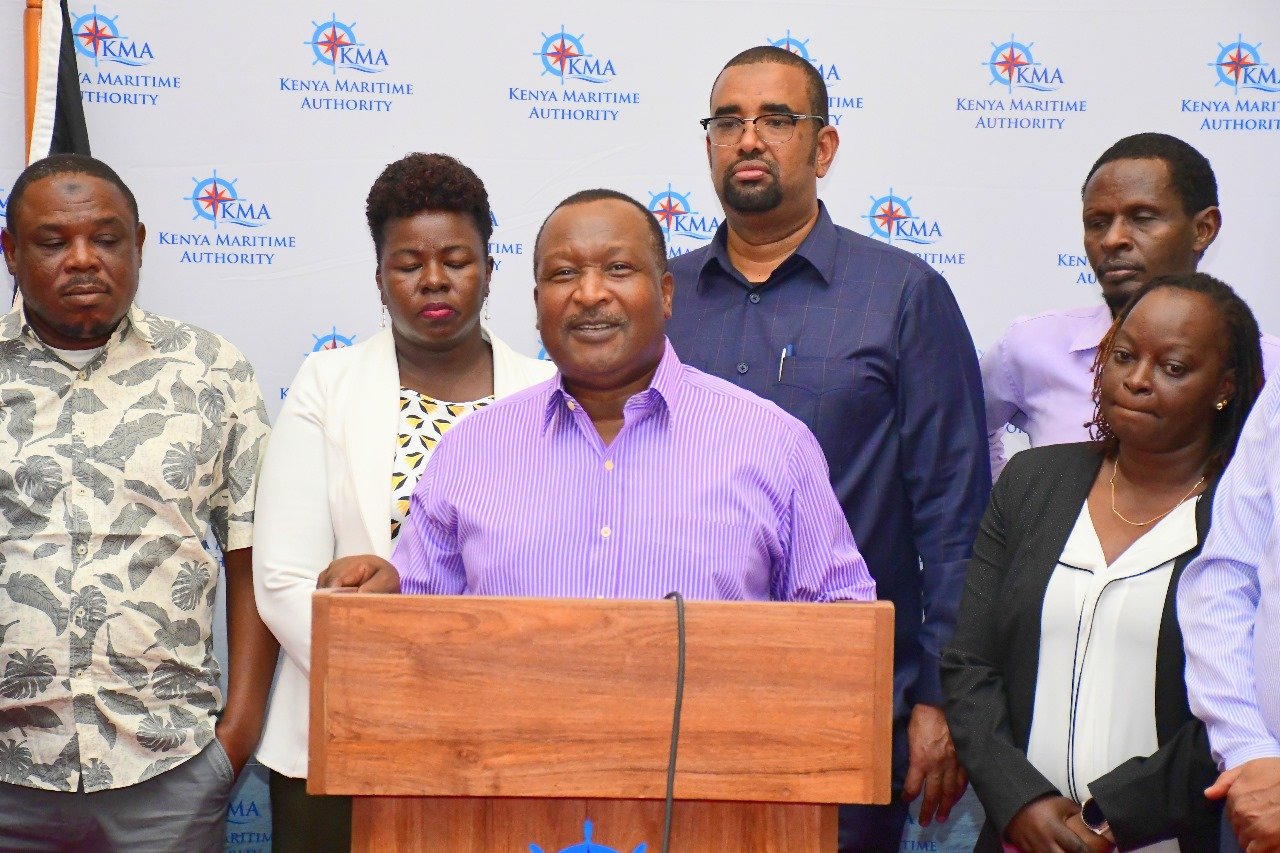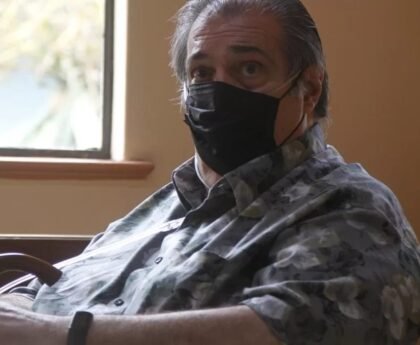The Kenya Maritime Authority (KMA) has become synonymous with scandal, corruption, and leadership instability as it welcomes yet another Director General amid a trail of corruption allegations and boardroom conflicts that have plagued the institution for years.
The scandal-ridden Kenya Maritime Authority (KMA) has appointed Omae Nyarandi as its new Director General, raising fresh hopes for an institution that has earned the notorious reputation of chewing up and spitting out successive leaders in a cycle of corruption and internal warfare.
Nyarandi, a seasoned maritime expert and former Executive Secretary of the Northern Corridor Transit and Transport Coordination Authority (NCTTCA), was unveiled on July 16, 2025, in a ceremony at KMA headquarters, Bahari Towers, Mombasa.
Poisoned Chalice
The position of KMA Director General has earned what industry insiders describe as a “poisoned chalice” reputation, with successive holders falling victim to internal boardroom wars and integrity probes that have become the norm rather than the exception.
His appointment comes less than 10 months after the unceremonious ouster of his predecessor, Martin Dzombo Munga, who was bundled out just nine months into office under a cloud of controversy.
Munga’s tenure exemplifies the systematic corruption that has become endemic at KMA. Martin Dzombo Munga takes over as Director General. in December 2023, but his ambitious agenda was quickly overshadowed by allegations of financial impropriety and abuse of office.
By September 20, 2024, Munga was sent on compulsory leave amid allegations of irregular staff recruitment, financial impropriety and abuse of office. He moved to court to sue board members, whom he accused of graft. In a case filed at the Employment and Labour Relations Court in Mombasa, Munga claimed that his removal stemmed from his refusal to approve “unclear payments” and insisted on only authorising requests that had been properly justified and approved by the head of finance.
Investigations by the Ethics and Anti-Corruption Commission (EACC) centred on questionable hiring practices spanning two financial years.
Web of corruption
The corruption at KMA extends far beyond leadership positions. Soon after Munga’s exit, the authority’s Head of Human Resource and Administration, Henry Mwasaru and Head of Supply Chain Management, Bevaline Lundu, were arrested over a Ksh40.5 million insurance tender scam.
The pair was accused of colluding with Liaison Group Insurance Brokers to manipulate tendering processes.
This scandal came to light through a whistleblower letter, highlighting how corruption had become so entrenched that external intervention was necessary to expose it.
Additionally, the authority faced criticism over its handling of maritime safety incidents.
Two fishermen died in Kilifi County after two fishing boats capsized at Tezo area, while another boat with two fishermen capsized at Tezo area.
The fishermen who were rescued along the reef were later rescued.
In May 2024, two fishermen attempting to salvage cargo from the sunken MV Garissa Madogo Road were found dead near their boat capsized.
KMA was also criticised for its failure to approve legislation that would have helped in the registration of ships.
EACC said it was investigating allegations of irregular recruitment of staff during the financial year 2022/2023 and 2023/2024. Munga and the board pointed accusing fingers at each over the recruitment.
Boardroom warfare
The KMA’s troubles reflect a broader pattern of governance failure in Kenya’s state corporations, where boardroom wars have become the norm.
The board replaced Munga an engineer with Julius Koech also an engineer as acting director general.
Eng Munga’s replacement follows protracted boardroom wars in the past few months and allegations of irregular emloyment of 30 workers, corruption amid huge budget cut from the exchequer.
These boardroom conflicts are not merely personality clashes but often mask deeper institutional rot where corruption has become systematized.
The rapid succession of leadership changes creates instability that further enables corrupt practices to flourish.
Pattern of dysfunction
The problems at KMA date back decades, with the authority being marked by a high turnover of director generals since its establishment.
The founding Director General Nancy Karigithu was appointed in 2005 and served for years before the current cycle of instability began.
Recent investigations have revealed concerning patterns in KMA’s operations.
Unionists raised red flags over the entry of unregistered agents seeking approval from government to take advantage of international ships, sparking concerns of poor pay and working conditions.
Out of 13 managing agents licensed to recruit Kenyans, only six have verifiable agreements with shipping lines as principals, compounding the regulatory problems.
The authority has struggled with basic regulatory functions, with glaring disparity raising serious questions about the competence and the true value these agencies provide to Kenya’s maritime sector.
The corruption at KMA represents more than isolated incidents – it reflects systemic institutional failure where oversight mechanisms have been compromised.
Mr Munga was sent home at the height of an alleged bungled search and rescue mission of a boat that capsized in Lake Turkana and questionable recruitment of 30 new staff in a case that is being investigated by the Ethics and Anti-Corruption (EACC).
The timing of Munga’s dismissal, coinciding with a failed rescue mission, underscores how corruption undermines the authority’s core mandate of maritime safety and regulation.
New leadership, old problems
Speaking during the unveiling, KMA Board Chair Ahmed Kolosh expressed optimism that the new DG would inject fresh professionalism and restore public confidence in the maritime regulator.
However, such optimism has been expressed before, only to be dashed by recurring scandals.
Principal Secretary in the State Department for Shipping and Maritime Affairs, Aden Millah, said the appointment comes at a crucial time for the maritime sector.
The question remains whether structural reforms will accompany the leadership change or whether the cycle of corruption will continue.
The KMA corruption scandals occur against a backdrop of similar governance failures across Kenya’s state corporations.
The pattern mirrors recent scandals in other institutions, including the Fight For Control of Sh50B World Bank Cash Stirs Boardroom Wars at ICT Authority, suggesting that boardroom wars and corruption have become normalized across the public sector.
The maritime sector’s strategic importance to Kenya’s economy makes the corruption at KMA particularly damaging.
The authority’s mandate includes coordinating search and rescue operations, maintaining ship registers, and preventing maritime pollution – critical functions that suffer when institutional integrity is compromised.
Nyarandi, who officially takes the reins following a string of unceremonious exits of former bosses, pledged to lead with integrity and teamwork.
However, his success will depend not just on personal integrity but on implementing systemic reforms that address the root causes of corruption.
The authority requires comprehensive governance reforms, strengthened oversight mechanisms, and a culture change that prioritizes public service over personal gain. Without such reforms, Nyarandi risks becoming another casualty of the institutional dysfunction that has claimed his predecessors.
As Nyarandi takes over, the burden to clean up KMA and restore its credibility looms large.
The Kenyan public deserves a maritime authority that serves the national interest rather than the personal interests of those who run it.
The question now is whether the new leadership can break the cycle of corruption and boardroom wars that has become the norm at KMA, or whether this appointment will merely be another chapter in the ongoing saga of institutional failure.
Kenya Insights allows guest blogging, if you want to be published on Kenya’s most authoritative and accurate blog, have an expose, news TIPS, story angles, human interest stories, drop us an email on [email protected] or via Telegram
Share via:




